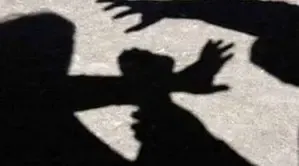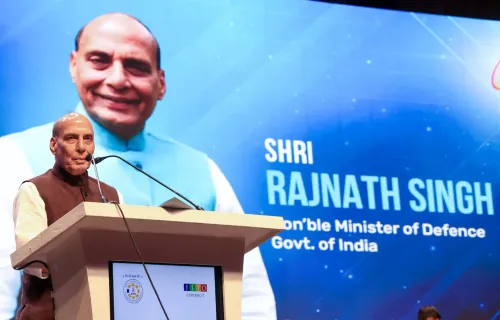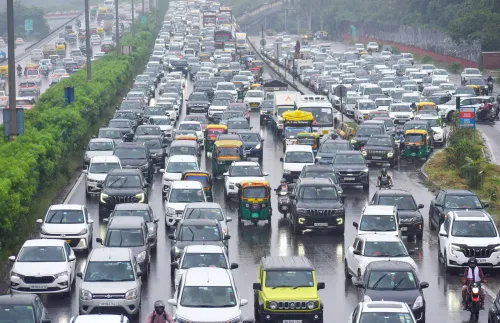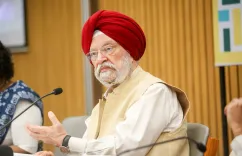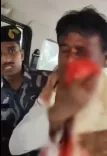Could Nara Lokesh's Remarks Ignite Tensions Between Telugu States Over River Water Sharing?
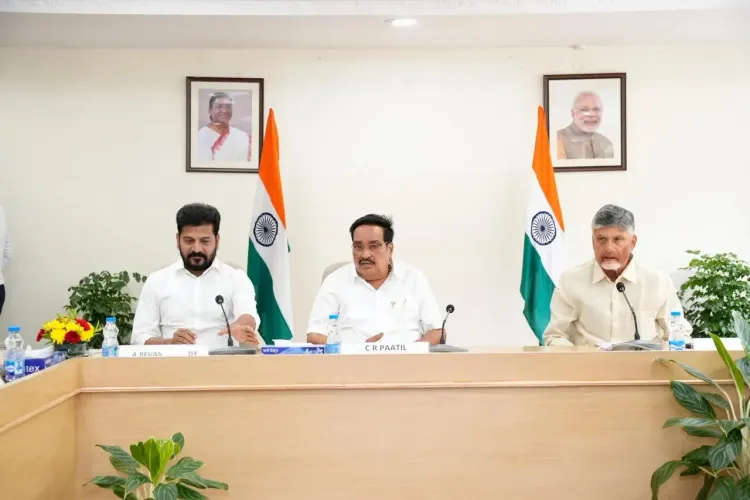
Synopsis
Key Takeaways
- Nara Lokesh's remarks have reignited tensions over river water sharing.
- The Godavari-Banakacherla Link Project aims to redirect floodwater for agricultural use.
- Telangana leaders, especially from the BRS, are staunchly opposed to the project.
- Both states agreed to form a committee to resolve water disputes, which has yet to materialize.
- Political dynamics are significantly influencing water rights discussions.
Hyderabad, Aug 3 (NationPress) A new wave of dispute has surfaced between Telangana and Andhra Pradesh concerning the allocation of river water, following comments made by Andhra Pradesh Minister Nara Lokesh, who defended the contentious Godavari-Banakacherla Link Project and asserted that the government is committed to securing the Centre's endorsement for it.
Just two weeks after both Telugu states reached an agreement to establish a committee aimed at resolving river water disputes, Lokesh’s statements have sparked increased friction between the two neighboring states.
Lokesh, the son of Chief Minister N. Chandrababu Naidu, faced backlash not only from the ruling Congress government in Telangana but also provided the opposition Bharat Rashtra Samithi (BRS) with further grounds to criticize Chief Minister A. Revanth Reddy for supposedly compromising Telangana’s interests to his “political mentor,” CM Naidu, by consenting to the committee.
As the Minister for Human Resources Development and Information Technology, Lokesh challenged Telangana’s concerns regarding the project and queried whether the state had the necessary approvals for its own Kaleshwaram project on the Godavari River.
He argued that Andhra Pradesh plans to redirect Godavari water that would otherwise flow into the sea to the Rayalaseema region via the Banakacherla project, stating, “Why should anyone oppose this?”
“We will redirect the river water coming to Andhra Pradesh after passing through Telangana and heading to the sea. I’m astonished by their objections. Why did you construct the Kaleshwaram project? Do you possess regulatory committee approval?” he questioned.
Lokesh accused certain leaders of intentionally fostering regional discord in the name of Banakacherla for political gain.
While he refrained from naming any party, the BRS swiftly countered his comments. Asserting that they are the only party capable of safeguarding Telangana's water rights, the BRS pledged to legally challenge the Banakacherla project.
“Discussing our water rights is not inciting regional tensions. What’s wrong with advocating for the future of our people? As the party that achieved Telangana, we will assert our rightful water share,” stated BRS leader and former irrigation minister T. Harish Rao.
In response to Lokesh's assertion that Andhra Pradesh did not impede the Kaleshwaram project, Harish Rao suggested he inquire with his father about the seven letters sent to the Centre to halt the project.
Regarding Lokesh's claim that they possess the “required power” to secure the Centre’s approval for Banakacherla, Harish Rao alleged that CM Naidu is operating according to his own agenda, as Revanth Reddy remains silent.
“Revanth Reddy is preoccupied with paying 'guru dakshina' to Chandrababu Naidu,” Harish Rao remarked, alluding to the historical ties between the two chief ministers.
Lokesh's statements also provoked criticism from Telangana ministers and Congress officials, who cautioned that his remarks could jeopardize the amicable relationship between the two states.
Telangana Deputy Chief Minister Mallu Bhatti Vikramarka labeled Lokesh's assertion that the Banakacherla project will redirect water flowing to the sea as “misleading.” He contended that river basin states have entitlements to flood waters.
Vikramarka held the BRS accountable for the water reaching downstream, stating, “During its decade-long rule, the BRS failed to implement projects to utilize the state’s share.”
He emphasized that Telangana would not engage in further discussions about Banakacherla unless its rights and needs are addressed.
Rejecting BRS's claims of a covert agreement with the TDP-led coalition government in Andhra Pradesh, Vikramarka affirmed that Chief Minister Revanth Reddy and Irrigation Minister Uttam Kumar Reddy traveled to Delhi to halt the Banakacherla project.
Congress leaders further alleged that the BRS, during its governance, compromised Telangana's water rights to Andhra Pradesh, asserting that their government is now striving to reclaim those rights.
Last week, the Union Government informed Parliament that construction on Banakacherla has not commenced, as the Telangana government continues to express serious objections to it.
Minister of State for Environment, Forest and Climate Change Kirti Vardhan Singh stated in response to an inquiry that the ministry received a proposal seeking a grant of Terms of Reference for conducting an environmental impact assessment study for the proposed project.
The proposal was reviewed by the Expert Appraisal Committee (EAC) for River Valley and Hydro-Electric projects in its meeting held on June 17.
The EAC recommended that the project proponent should consult the Central Water Commission regarding inter-state issues and obtain necessary clearances before submitting the proposal for framing the TOR for the EIA study. Consequently, the EAC advised the proposal's return.
The Rajya Sabha was informed that the project is currently under evaluation by the CWC in consultation with all relevant authorities and co-basin states.
In a new development, Lokesh stated that the Andhra Pradesh government will ensure that the CWC grants clearance for the Banakacherla project.
Given that the Telugu Desam Party (TDP) is a significant ally in the BJP-led NDA government at the Centre, Congress and BRS leaders in Telangana are concerned that Chandrababu Naidu may sway the Centre to approve the project.
The Banakacherla project aims to redirect 200 TMC (thousand million cubic feet) of Godavari floodwater to irrigate 7.41 lakh acres, stabilize 22.58 lakh acres in drought-prone Rayalaseema and southern coastal districts, and supply industrial water.
During his recent meetings with Union Home Minister Amit Shah, Jal Shakti Minister C.R. Paatil, and Union Finance Minister Nirmala Sitharaman, CM Naidu sought the Centre's assistance in completing the project, estimated to cost Rs 80,000 crore.
He explained that the project intends to redirect 200 TMC of floodwater from Polavaram to the Banakacherla regulator in Kurnool district. He emphasized that, as the final state along the river’s course, Andhra Pradesh has the legitimate right to fully utilize this surplus water from the Godavari.
CM Naidu maintained that the proposed project does not threaten Telangana's interests. He has consistently stated that 2,000 TMC of Godavari water is flowing into the sea, and if utilized, it would benefit both states.
Telangana opposes the Banakacherla project due to concerns over its impact on water availability and potential violations of inter-state water sharing agreements.
During a meeting in Delhi on July 16, attended by the Jal Shakti Minister, the chief ministers of both states agreed to form a committee to tackle all issues related to Godavari and Krishna river waters.
It was stated that the committee would comprise senior officials, engineers, and experts from both Telugu states. It was supposed to be established within 3-4 days and provide a resolution on all matters within 30 days. The committee has yet to be formed.
While the Telangana Chief Minister asserted that Banakacherla was not on the agenda during the meeting, Andhra Pradesh’s Irrigation Minister Nimmala Rama Naidu claimed it was the first item discussed, stating that the proposed committee will examine all issues, including Banakacherla.


